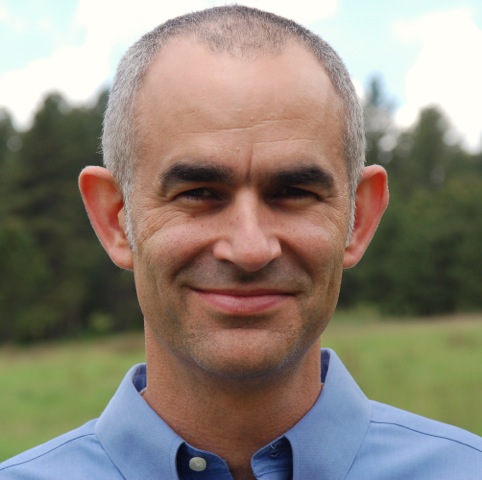Story
RACE: Are We So Different?
A Community Conversation
At the end of each summer, Denver Public Schools social studies teachers come together to talk about the beginning of the school year and share resources and ideas for engaging our district’s children in rigorous, meaningful learning. This year, my colleagues and I at Facing History and Ourselves, together with History Colorado, had the opportunity to speak to the 200 teachers from across the district about how we can use lessons and voices from history to start important dialogues about race with young people.
At the end of each summer, Denver Public Schools social studies teachers come together to talk about the beginning of the school year and share resources and ideas for engaging our district’s children in rigorous, meaningful learning. This year, my colleagues and I at Facing History and Ourselves, together with History Colorado, had the opportunity to speak to the 200 teachers from across the district about how we can use lessons and voices from history to start important dialogues about race with young people. On August 19, using History Colorado’s upcoming exhibit RACE: Are We So Different? as a backdrop, we asked teachers to reflect on two questions: “What are some challenges about discussing race in the classroom?” and “What might be some benefits if we were all (both teachers and students) more comfortable talking about race in the classroom?”
The teachers had a lot to say. Many talked about their fear that their students might misunderstand them. Others talked about their concern that the conversation could get out of control. We heard again and again that teachers felt as though they did not “know enough” about race – about the history, about race today, about which terms to even use when discussing it in a classroom. But for all of the fears they had, they also talked about many benefits – building better relationships among people of different backgrounds, developing greater trust and shaping stronger communities.
What the teachers needed, they said, were tools to help them better navigate conversations about race in the classroom. At Facing History, we have provided those tools to students and educators around the world, including here in Denver, for nearly 40 years through print and digital resources, one-on-one support and professional development. We also help community members – those who don’t spend their days in the classroom but care about issues of empathy, tolerance and understanding – have these same conversations.
On September 22, we’ll celebrate the opening of the exhibit with a free community conversation featuring award-winning news correspondent and journalist Maria Hinojosa, host of NPR’s Latino USA. Ms. Hinojosa has spent a career exploring how issues of race and ethnicity impact not only our identities and how we walk in the world, but also the very promise of democracy. We hope you join us.
Register today for Facing History’s free Community Conversation with Maria Hinojosa. This event is presented by Facing History and Ourselves and The Allstate Foundation, in partnership with History Colorado. There is currently a waitlist, but we are encouraging interested people to register and we will notify you by September 16 if a seat has become available.
Find resources, tools and teaching strategies for learning about and discussing issues of race, membership and identity in the community and in the classroom here.

